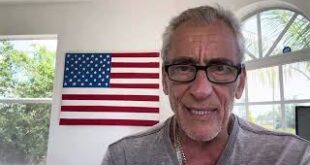When this parabolic move implodes, gold will be dead for 10 years. 
Read More »Blog Archives
Duncan Foley On Why General Equilibrium Maybe Is Not Neoclassical Economics
Duncan Foley participated in a 2003 conference comparing and contrasting general equilibrium theory with long period models developed by advocates of the Cambridge capital critique. This is from the wrap-up discussion on the last day. "I am in a somewhat peculiar position because due to certain idiosyncrasies of my education I never learned 'neoclassical economics'. The economic theory that I learned wasfrom Herbert Scarf and it was couched entirely in terms of the abstract general...
Read More »No sustained market rally until the Debt ceiling is raised.
We’re in an unnecessarily bad situation. 
Read More »No DOGE cuts. $100 bln phantom “savings.”
Where are the supposed savings?
Read More »People’s behavior fascinates me.
Many feel, they are not deserving and they will find any excuse to make that a reality. 
Read More »Double Fluke Cases For Triple-Switching In The Corn-Tractor Model
Figure 1: Wage Curves for an Example With Tractors Lasting One and Two Years 1.0 Introduction This post presents two examples in the corn-tractor model. These examples are double fluke cases. Each has three switch points. One is on the wage axis, and another is on the axis for the rate of profits. Perturbations of parameters of each example can result in triple-switching. The corn-tractor model is a fixed capital model, an adaption of the Samuelson-Gargenani model. The consumption...
Read More »The Hidden Power of Sovereign Wealth Funds — NeilW
A recent UnHerd article warns of a “crypto time bomb,” suggesting that stablecoins could become a geopolitical tool to undermine the U.S. economy by redirecting foreign dollar reserves into U.S. Treasuries. The core assumption is that countries like Japan are sitting on idle piles of dollars, waiting for a stablecoin intermediary to put them to use.This misreads how international finance operates. Like other major dollar holders, Japan doesn’t need help managing reserves. Dollars earned from...
Read More »I told you today would be a down day.
And tomorrow will be an up day. How do I know? 
Read More »DOGE deletes 7M Federal ID numbers
If these numbers represent illegal alien people currently working using other dead peoples ID numbers, when the payroll taxes are paid this week and 7M fraud notices go out to the employers it could turn out Elon actually threw 7 million people out of their jobs this week … it could create a mass firing event of 7 million people who are currently working (albeit illegally but nevertheless) in the economy, …. causing a collapse in output and a collapse in tax receipts going forward…Mike will...
Read More »Have we entered into a new condition?
Are tax drains now good and net transfers bad?
Read More » Heterodox
Heterodox







